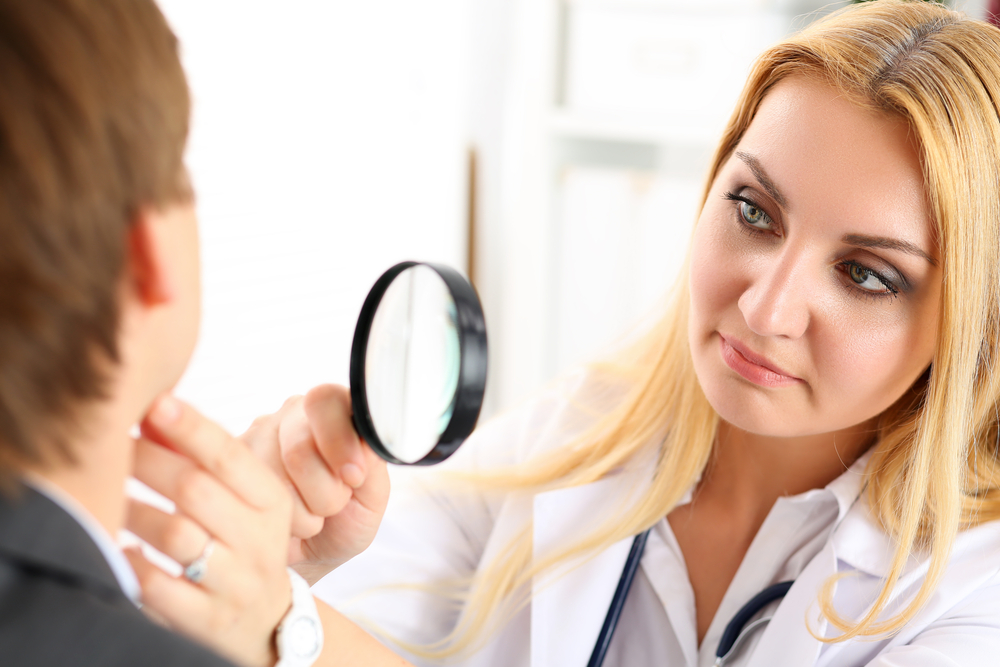Skin sensitivity is well-known to everyone. The development of blemishes and wrinkles on the skin is very usual. But we don’t visit a dermatologist every time when we experience such a problem. However, ignoring skin problem is not a good habit rather you should know when to see a dermatologist to get proper skin care treatment so that the skin problem remains under control.
Spare time for Skin checkup:
You may have been busy in daily works or meeting to-do list every day, but being reckless towards the health is not a good habit. Our skin is the most exposed to the outside environment that poses some damaging effects, so following some skin care tips can make you look and feel better.

Talking about the severity of the skin problem, about 3 million new cases of skin cancer are registered in the US alone. At least, go for the annual skin checkup to get to know about the health of your skin. The expert can suggest you better about the best skin care products in all seasons and environments. Some probable skin problems that require a dermatologist’s attention are:
Moles with irregular borders:
Many people have moles, birthmarks, or freckles on the skin. It’s possible that the sizes and borders of the moles change over time. Experts find that the development of such birthmarks is largely harmless but the growth of certain moles could develop itching on the skin and if they start bleeding, it could be a sign of skin cancer. Surgery is a treatment option to eliminate such marks from the skin. Get an appointment with your dermatologist if you are not sure about the severity of the mole(s). He can examine and detect the problem properly to prescribe the effective skin care products.
Excess of acne breakout:
Acne is a very common skin condition but it could turn into a problematic one if left untreated. It causes various skin blemishes like blackheads, whiteheads, deep cysts, and pimples on different parts of the body. Generally, acne is caused by the excess production of sebum, bacteria attack, infection, hormonal disorder, chemical contact, poor nutrition etc. Acne is not a life-threatening problem but its emotional or psychological consequences are many and it can take away the natural beauty of the skin. Some forms of acne contain puss and are very painful. In such a condition, you should take a skin care treatment from a certified dermatologist. In some cases, acne is treated by the application of over-the-counter creams, gels, laser therapy, and oral medication, but one should take any such treatment under the supervision of a dermatologist.
Eczema:
Eczema is a chronic skin condition characterized by the roughness, blisters, swelling, itchiness, and severe inflammation of the skin. Children are more likely to develop this condition if a parent has had suffered from this a topic disease. It affects different skin areas on the body. Just following some natural skin care tips would not be enough to treat eczema and you may need to see a dermatologist multiple times to get an accurate diagnosis. Skin experts often examine the family history and various skin symptoms for treating eczema effectively.
Melasma and Vitiligo:
Both melasma and vitiligo are serious skin conditions in which patches are visible on the skin. In melasma, some irregular-sized gray or dark brown patches affect skin especially facial areas in both men and women. Vitiligo causes white patches on the skin due to loss of pigment. The precise factor behind vitiligo is still complex but it mostly happens when pigment-generating cells in the skin are destroyed. A person with melasma or vitiligo needs the best skin care products to get back the natural beauty of the skin. Traditionally, a topical corticosteroid cream is prescribed for the treatment of vitiligo and a sunscreen for melasma. Both the skin conditions require a comprehensive and effective skin care treatment for a little longer time.
Also Read: What’s Your Skin Type?
Some other skin conditions that require you visit a dermatologist in time and you have to follow some skin care tips regularly. These conditions include bald spots, rosacea, red skin flare-ups, skin irritation or skin damage, psoriasis, skin cancer, hair loss, skin infection etc.




